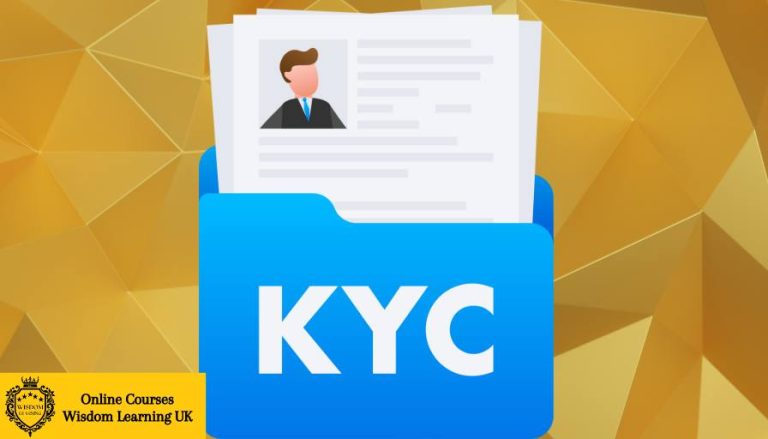Entrepreneurship Mastering Financial Metrics

The Entrepreneurship: Mastering Financial Metrics course is designed for aspiring entrepreneurs and professionals seeking to harness financial literacy and strategic insight into the world of entrepreneurship. This Entrepreneurship : Mastering Financial Metrics course explores essential financial metrics, investor strategies, and valuation techniques critical to launching and growing a sustainable business. In the world of entrepreneurship, mastering financial principles is key to building a thriving venture. This Entrepreneurship: Mastering Financial Metrics course provides participants with a strong foundation in the financial skills necessary to navigate the complex landscape of modern entrepreneurship. Whether it’s calculating ROI, understanding investor expectations, or deciphering key financial indicators, this Entrepreneurship : Mastering Financial Metrics course equips entrepreneurs with the tools to make informed financial decisions. With a focus on financial terminology and investor perspectives, students learn the critical language of entrepreneurship and how it connects to real-world financial decisions.
How This Course Can Help
In the UK, where entrepreneurship is increasingly supported by a thriving startup ecosystem, this course provides vital financial insights that can enhance the prospects of emerging businesses:
- Investment Readiness
- Improved Financial Decision-Making
- Strategic Scaling and Market Understanding
- Enhanced IP Protection
- Effective Negotiation Skills
- Growth Through Customer-Centric Metrics
- Facilitating Profitable Exits
Who is this course for?
This Entrepreneurship : Mastering Financial Metrics course is ideal for:
- Aspiring Entrepreneurs
- Early-Stage Startup Founders
- Small Business Owners
- Business and Finance Students
- Professionals Transitioning to Entrepreneurship
- Consultants and Advisors
What I will learn?
- Understand Key Financial Metrics: Grasp fundamental financial concepts such as ROI, revenue, profit, gross margin, and EBITDA, essential for business decision-making and investment readiness.
- Conduct Business Valuations: Calculate and interpret pre- and post-money valuations and apply common valuation methods, enabling accurate assessments of business worth.
- Manage Ownership and Equity: Recognise how equity structuring and dilution impact ownership stakes, providing insight into how funding rounds affect control and decision-making power.
- Navigate Investor Relations: Familiarise with types of investors, including angel investors and venture capitalists, and communicate effectively using investor-specific terminology.
- Analyse Financial Health: Differentiate between revenue, burn rate, and runway to assess a startup’s financial sustainability.
- Develop IP and Competitive Advantage: Identify the types of intellectual property (IP) and understand how to leverage IP to build defensibility against competitors.
- Optimise Customer Acquisition and Retention: Calculate customer acquisition cost (CAC) and lifetime value (LTV) to optimise growth strategies and retention efforts.
- Scale Effectively: Evaluate market potential using Total Addressable Market (TAM), Serviceable Addressable Market (SAM), and Share of Market (SOM), helping to identify scalability opportunities.
- Prepare for Deal Structuring and Exit: Understand the dynamics of deal structures and exit strategies, preparing for successful negotiations and profitable exits.
Course Curriculum
Course Curriculum Preview
Module 1: Introduction to Key Business Concepts
Learning Objectives: Understand the investment format and identify the essential
business terms that investors use.
-
Types of Investors: Angels, Venture Capitalists, Strategic Investors and others
-
Key concepts: ROI (return on investment), business model, customer acquisition
-
Investor Lingo 101: Defining commonly used terms
Module 2: Valuation Fundamentals
Learning Objectives: Calculate and interpret business valuation terms as used by
investors.
-
Valuation Basics: What it means and why it matters
-
Pre-money vs. post-money valuation
-
Common Valuation Methods: Market multiples, revenue-based, and asset based valuations
-
Calculating Ownership and Equity: Equity percentages and how valuations affect ownership
Module 3: Revenue, Profit, and Financial Health
Learning Objectives: Differentiate between revenue, profit, gross margin, and other
financial metrics.
-
Revenue vs. Profit: Understanding the difference and why it matters to investors
-
Gross profit, net profit, and EBITDA (earnings before interest, taxes, depreciation, and amortisation)
-
Burn Rate and Runway: Assessing the time a startup has before it runs out of cash
-
Financial Metrics that Influence Investment Decisions
Module 4: Ownership, Equity, and Stake Percentages
Learning Objectives: Understand the concepts of equity, dilution, and ownership
stakes
-
Equity and Ownership: How equity is structured in startup deals
-
Dilution: What happens when new investors come in?
-
Majority vs. Minority Stake: Control dynamics in a company
-
How different equity stakes affect decision-making power
Module 5: Intellectual Property (IP) and Proprietary Advantage
Learning Objectives: Explore intellectual property and how it protects business ideas.
-
Types of IP: patents, trademarks, copyrights, and trade secrets
-
Proprietary Advantage: How having a unique product or technology benefits a business
-
Defensibility in Business: The Role of IP in Preventing Competitors from Copying Products
Module 6: Customer Acquisition and Retention
Learning Objectives: Learn about customer metrics and strategies for growth.
-
Customer Acquisition Cost (CAC) and Lifetime Value (LTV)
-
Strategies for customer retention and reducing churn
-
Importance of Customer Metrics to Investors
-
Scaling Customers: Growth strategies investors look for in pitches
Module 7: Scaling and Market Potential
Learning Objectives: Understand what scalability means and why it’s attractive to
investors.
-
Scalability: Identifying whether a business model is scalable
-
Total Addressable Market (TAM), Serviceable Addressable Market (SAM), and Share of Market (SOM)
-
Challenges of Scaling: Operational, supply chain, and market-entry issues
Module 8: Deal Structure and Exit Strategies
Learning Objectives: Analyse deal structures and how investors plan to exit.
-
Deal Types: equity, debt, royalties, and convertible notes
-
Common Exit Strategies: Acquisition, IPO, or buyback
-
How exit strategies influence investor
-
Why a clear exit plan is essential to investors
Module 9: Negotiation Skills and Investor Relations
Learning Objectives: Build effective negotiation skills for securing investment deals
-
Negotiation Tactics: Strategies for negotiating equity and valuation
-
Counter Offers: Knowing when and how to make counter-offers
-
Key skills for convincing investors of a business’s potential
Assessment (MCQ)
MCQ
-
MCQ
Get Your Certificate & Transcript
-
Get Your Certificate & Transcript
Certificate of Completion - Free
Add this certificate to your resume to demonstrate your skills & increase your chances of getting noticed.

-
LevelAll Levels
-
Duration8 hours 30 minutes
-
Last UpdatedMarch 6, 2025
-
Enrollment validityEnrollment validity: Lifetime
-
CertificateCertificate of completion

















